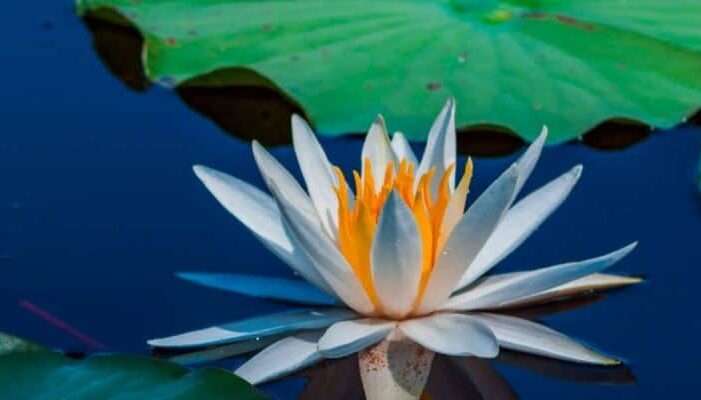POSTS:

How do we know if secular Buddhism is the ‘appropriate’ view and path?
While we cannot definitively know that secular Buddhism is the most ‘appropriate’ approach to the dharma in some universal sense, Mike Slott asserts that each individual can determine whether secular Buddhism is an ‘appropriate’ view and path for their own life based on their experiences, interests, and goals.

A response to SBN’s interview with David Edwards: the need for skillful goal-oriented activism
Responding to David Edwards' criticism of goal-directed Left activism in his interview with SBN, Mark Evans argues that we do need skillful goals to guide our actions, counter cynicism, inform our judgment. Skillful goals are a 'middle way' between reactive cynicism and debilitating myths.

Reimagining Community newsletter #17 February 2021
Welcome to our February 2021 newsletter. This month we highlight a new book by Lenorë Lambert on secular Buddhism, the first meeting of the SBN online group, and a new article by Winton Higgins. We also note a new Bodhi College course taught by Stephen Batchelor, a secular program for Buddhist recovery from Dave Smith, and a virtual townhall for readers of the newsletter, Creative Dharma.

Interwoven nature: reflections on reconnecting body, mind and world
A longtime practitioner of Zazen and a secular Buddhist, John Danvers argues that mindful meditation enables those who practice it regularly to experience the self as a process that extends out into the world, to realise how open and porous we are and how interconnected we are with other beings and with our surroundings.

Dharma vision and tragic vision
In a dharma talk given to the Bluegum Sangha (Australia), Winton Higgins discusses the close affinity between Gotama's notion of dukkha and the tragic tradition in western culture, beginning with the Greek tragic playwrights. A common theme is that our difficulties are an essential part of every human life. Our task is to embrace these difficult challenges and say ‘yes’ to life no matter how dire the predicament.

SBN’s online group meets for the first time
The Secular Buddhist Network online group held its first meeting 21 January. 41 people participated in the Zoom meeting from nine countries: Costa Rica, Ireland, the UK, New Zealand, France, Australia, Germany, Canada, and the U.S. During the meeting, the participants shared their practice and perspectives with each other as we explored the relevance of secular Buddhism in our lives.

Lenorë Lambert’s The Buddha for Modern Minds: A non-religious guide to the Buddha and his teachings
Lenorë Lambert's new book, The Buddha for Modern Minds: A non-religious guide to the Buddha and his teachings, provides newcomers and experienced practitioners with answers to key questions such as: Does the dharma teach passivity? Is the dharma anti-passion? Do I need to find a teacher to learn the dharma? The book also offers a deep dive into the Four Great Tasks (orthodox Four Noble Truths).

Reimagining Community newsletter #16 January 2021
Welcome to our January 2021 newsletter. This month we highlight new articles by Linda Modaro, Stefano Bettera, and Mike Slott, as well as an interview with David Edwards, a UK-based media critic. We also note the publication of a new book from Tuwhiri, a publishing imprint created by secular Buddhists, and the first meeting of a new online group for secular Buddhists.

Healing together
We must rediscover a view of the other that is not dominated by fear, but courageously puts friendship back at the centre, as a sincere opportunity to get to know each other, to compare notes, to build an identity that is the beginning of a process of imagining a new collective identity.

An interview with David Edwards on corporate media bias, political activism, and meditation
SBN interviewed David Edwards, the co-editor of the UK-based media watch site Media Lens and author of several books. David discussed his critique of corporate media bias and how political activists can make a real difference by focusing on being, not just on doing; on learning to truly live and feel, rather than solely on external change.

Science, meditation, emotion, creativity
Commenting on the English novelist Phillip Pullman's interview with the New Scientist journal, Ramsey Margolis urges us to to develop a creative, imaginative approach to the dharma so that we can respond to the issues we’re facing today as living beings on this planet: climate emergency, social inequality and exclusion, species extinction (including our own), and much more.

Coming to terms with being human: a fourth mark of existence
Buddhists teachings point us towards three characteristics that are common across everything in sentient life: dukkha, anatta, and anicca. Linda Modaro posits a fourth mark of existence based on our need to survive and thrive.

Reimagining Community newsletter #15 December 2020
Welcome to our December 2020 newsletter. This month we announce a new online group for secular Buddhists. We also highlight the continuing debate between Seth Zuihō Segall and Winton Higgins on secular Buddhism, an interview with Robert Wright, a new dharma talk by Stephen Batchelor, and the Spring 2021 SBN course on After Buddhism: exploring a secular dharma.

Seth Zuihō Segall and Winton Higgins debate the meaning and value of secular Buddhism
Beginning with Seth Zuihō Segall's article, 'Why I am not a secular Buddhist,' Seth and Winton Higgins have engaged in a dialogue on SBN about the meaning and value of secular Buddhism. They have discussed the notion of secularity, religion and religious experience, the role of community, and other key issues.

The dialogue on secular Buddhism continues: Winton Higgins’s surrejoinder to Seth Zuihō Segall’s rejoinder
In his reply to Seth Zuihō Segall's rejoinder in the debate over secular Buddhism Winton Higgins explores the meaning of secularity, religion, and the everyday sublime. He argues that a secular faith is not opposed to religion but is characterized by a deep engagement, a wholehearted commitment, to living this, our one and only life, meaningfully.
EXPLORE BY SECTION
SEARCH THE SITE
RECENT POSTS








